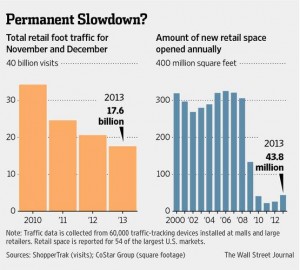Americans who play by the rules just got coal in their stockings, courtesy of the United States Government.
The most damaging and dispiriting government action this month is not its treatment of the Fiscal Cliff, but its enforcement decision showing that the rule of law is deliberately uneven. That is the message conveyed by the Department of Justice with its announcement earlier this month that neither HSBC nor any executives at the international bank would be criminally prosecuted for activities involving the money laundering of funds for terrorists and drug cartels (among other bad actors) for which the company itself has agreed to an unprecedented $1.92 billion fine, out of concern that such criminal charges could “destabilize the global financial system.”(1)
The message of a two-tiered justice system is actually amplified by the slap-on-the-wrist criminal plea on December 19th by a subsidiary of the equally too-big-to-fail UBS to one felony count of wire fraud in an emerging interest-rate manipulation scandal, providing for about $1.5 billion in fines and accompanied by criminal indictments of two hapless traders whom the bank decided to throw under the bus in a show sacrifice.(2) One need not be a cynic to view the institutional criminal plea, and the financial settlement which amounts to little more than a rounding error, a cost of doing business, as a transparent attempt to uphold the image — if not the rule — of equality under the law, precisely when they are being broken with impunity and the unofficial imprimatur of the government.
Lands where justice can be bought, where the application of the law depends upon whom it is to be applied, are typically found in Third World countries ruled by despots and the law of the jungle, where might makes right. In such countries, any purported rule of law is best referred to as crony justice. (Note: One cannot define it as “crony justice,” since the definition of justice involves equal application of uniform rules, hence, a two-tiered system involving arbitrary applications or “special treatment” ceases to be justice and that term cannot properly be modified by the word “crony,” or any other adjective, for that matter.)

